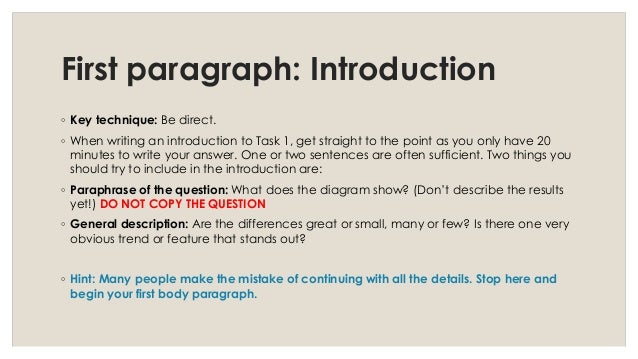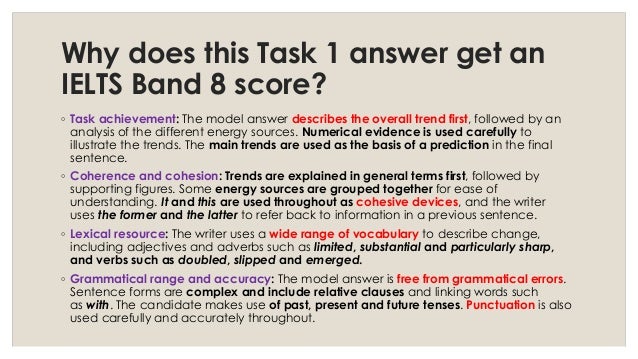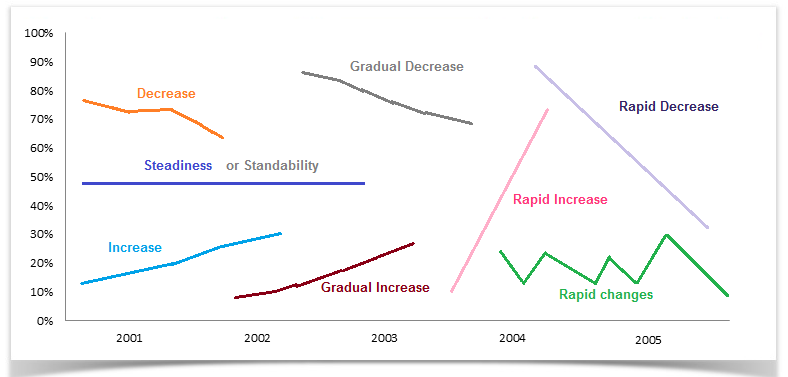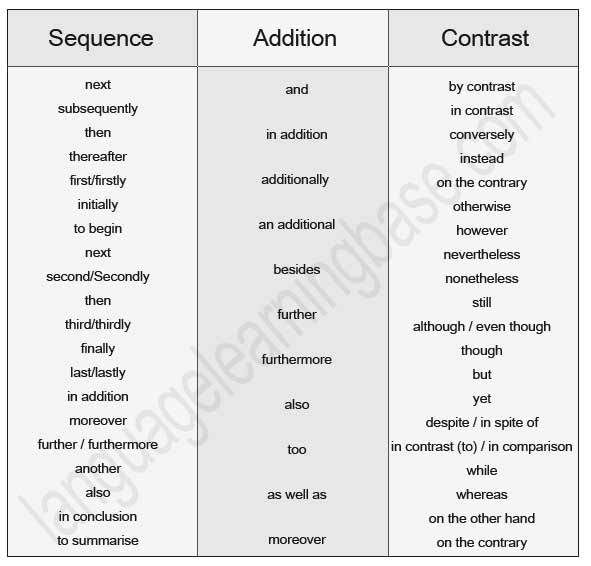In Academic Task 1 of the Writing module, you are expected to write a short descriptive report based on visual information or data. This visual information is most commonly presented as line and bar graphs, pie charts or tables.
You might be asked to describe two graphs or charts. If this is the case, you need to compare and contrast the information and make connections between the two.
You should spend about 20 minutes on this task.
 The diagram below shows the number of landline telephones per 1000 people in different countries over a five-year period.
The diagram below shows the number of landline telephones per 1000 people in different countries over a five-year period.
Write a report for a university lecturer describing the information shown below.
Write at least 150 words.

model answer:
The graph shows the number of telephones owned per thousand of the population in different countries over a five-year period. Overall, the number of phone owners per thousand of the population varied considerably. However, numbers tended to fall in countries with the highest level of phone ownership, whereas numbers generally rose in countries which had fewer phone owners in 2000.
By far the highest level of phone ownership was in Singapore, where just under 430 people per thousand were owners in 2004. This figure is slightly lower than the 2000 figure of around 460 per thousand. In Brunei Darussalam the second highest levels of phone ownership were recorded, and the numbers fluctuated around the 250 per thousand level across the five years. Countries like Cambodia and Vietnam had much lower levels of phone ownership and these increased up to 2004, rather than decreasing. In the remaining countries, the number of landline phone owners remained below the 100 per thousand level between 2000 and 2004.
(164 words)

ACADEMIC WRITING TASK 1
Sample 2
You should spend about 20 minutes on this task.
The bar chart shows the number of overseas students enrolled in a third year Computer Science course at a Canadian college.
Summarise the information by selecting and report in the main features, and make comparisons where relevant.
Write at least 150 words

model answer:
According to the bar chart, students from four Asian countries (China, Singapore, Malaysia and Sri Lanka) and one European country (France) are taking Computer Science at the collage. Some students are enrolled in the Database core option; the others are taking Networking.
Overall, the China has the largest number of enrolled students (17) and France has the smallest (5). Singapore and Sri Lanka both have 12 students; Malaysia has 11. It is noticeable that Singapore and Sri Lanka have similar profiles.
Students from all five countries are enrolled in Database, but more males are taking this option than females (21 and 9 respectively). For each nationality, the males taking Database outnumber the females, except in the case of French students with 3 females to only 1 male. The China has the most students studying Database (9); Sri Lanka is next with 7, while Singapore has 6. Malaysia and France have 4 Database students each.
As for Networking option, more females than males are enrolled from every country except France. In fact, no female French students are taking Networking. Only 1 male from each country is enrolled in Networking, except for 2 males from Sri Lanka.

ACADEMIC WRITING TASK 1
Sample 3
The bar chart below shows the percentage participation of men in senior development in three companies between 1980 and the year 2010.
Summarise the information by selecting and report in the main features, and make comparisons where relevant.
Write at least 150 words

model answer:
The bar chart shows the percentage of men in senior development position in three companies from 1980 to 2010.
While more men were in senior positions at Apple than other two companies in 1980 at 15%, the trend was fairly erratic with a 2% drop to 13% in 1985, followed by a rise of 1% five years later. In 1995, men held 7% more top development jobs than in 1990. After a slight drop back to 19% in 2000, by 2010 25% of top posts were filled by men.
By contrast, at IBM men fared much better. In 1980, 2% of senior posts were occupied by men with no change five years on. By 1990, the figure had increased to 13%, doubling to 26 per cent in 1995. Five years afterwards, there was a 6% increase in male senior development jobs with a near twofold jump in 2010 to stand at 63%, the highest for the three companies.
The situation was less remarkable at Microsoft than the other two firms except for the year 2010. In 1980, the percentage of senior posts held by men was 8% climbing at the rate of 2% in each subsequent period until 2000, after which it leapt to 45%. From the data, it is clear that men dominated senior posts at IBM by 2010.
ACADEMIC WRITING TASK 1
Sample 4
The graph below presents the employment patterns in the USA between 1930 and 2010.
Summarise the information by selecting and report in the main features, and make comparisons where relevant.
Write at least 150 words

model answer:
In 1930, 75% of the labour force in the USA was employed in farming, fishing and foresting while only 10% worked in sales and office and trade. At the same time both the Industrial sector and the technical sector constituted just 2% of the workforce each. This situation changed only very gradually over the next 20 years, except for the technical workforce, which increased more than threefold.
However by 1980 there had been a significant change in the pattern of employment. While the farming, fishing and foresting employees had declined in number to 40% of the workforce, Industrial employees as well as technical had increased their share to 13% and 10% respectively.
Similarly the sales and office sectors did not increase until 1980. The most dramatic change could be seen by 2000, when the proportion of farming, fishing and foresting works reduced to just 10% while the three other major sectors had all increased to over 20% of the workforce.
(160 words)
Test tip1: spend time studying the information first. The title given may help you with your first sentence, but try to use different words and don’t just copy words from the question paper. Try to identify key areas in the data. Do not miss out any important details in your description and make sure you stick to the time limit so that you leave enough time to answer task 2.
Test tip2: Writing about Graphs, Tables and Diagrams, Similarity can be shown by using:
| similarly |
likewise |
equally |
| in the same way |
the same |
in a similar way I fashion |
| both…. and…. |
as well as |
not only… but also |
| also |
too |
like x, y…. |
| as…. as…. |
just as x, y… |
just as x, so y…. |
|

ACADEMIC WRITING TASK 1
Sample 5
Summarise the information by selecting and reporting description of the correlation of the table that follow.
Write at least 150 words.
| Alcohol-Related Deaths 2005 |
beers consumption per capita, 2002 (litres) |
|
Total |
Male |
Female |
| Lithuania |
125,000 |
112,000 |
13,000 |
91 |
| Ireland |
582,000 |
413,000 |
169,000 |
104 |
| Czech Republic |
1,369,000 |
900,000 |
469,000 |
132 |
| Canada |
580,000 |
505,000 |
75,000 |
86 |
| Estonia |
383,000 |
332,000 |
51,000 |
98 |
| Germany |
1,185,000 |
986,000 |
200,000 |
107 |
| Austria |
913,000 |
783,000 |
130,000 |
106 |
model answer:
There is a clear correlation between the litres of beer consumed per capita and number of alcohol related deaths. The table shows that the greatest beer consumption in 2002 was to be found in Czech Republic, Germany and Austria, and that each of these regions also had by far the largest litres of alcohol related deaths in 2005. Czech Republic, with the greatest beer consumption per litre, namely over hundred and thirty for 2002, also experienced well over one million litres alcohol-related deaths by 2005. The region with the second highest beer consumption was Germany, with nearly 107 litres, and it also recorded the second highest number of alcohol-related deaths, namely 1.185 million.
In all regions except Canada it can be seen that the higher beer consumption, the higher the alcohol-related mortality rate. It is interesting that in Canada, with the lowest level of beer consumption, at 86 per capita, the mortality rate was the high as in Ireland, namely 0.58 million, although in the latter the consumption level was high. Clearly other health or economic factors must be involved. It is also interesting to note that in each case the number of female death was significantly lower than that of males, which seems to be a reflection of the fact that in general far fewer women than men drink.
(220 words)
| Test tip: There is no special vocabulary to be used for describing correlated graphs and tables.
There are two grammatical forms which are more likely to occur in this context: the superlatives of quantity such as the greatest number, the lowest incidence/occurrence etc.
and the comparative form: the greater the… the greater the…,etc. |

 IELTS General Writing
IELTS General Writing








 The diagram below shows the number of landline telephones per 1000 people in different countries over a five-year period.
Write a report for a university lecturer describing the information shown below.
Write at least 150 words.
The diagram below shows the number of landline telephones per 1000 people in different countries over a five-year period.
Write a report for a university lecturer describing the information shown below.
Write at least 150 words.








 ]]>
]]>
 Academic IELTS Writing Task 2 & Band 8.5 Discursive Essay
Many developing countries require aid from international organisations to develop. Many people think that this aid should be financial, while others think that practical aid and advice are more useful. Discuss both views and give your own opinion.
Sample Band 8.5
People have different views about the kind of support that wealthy nations should provide for poorer ones. Although some say that non-financial support is beneficial for poor countries, my own view is that international aid should be in the form of financial assistance.
There are several reasons to believe that practical assistance and advice are what developing countries need. Firstly, an effective education system is a key factor in the growth of a country, so advice on how to build such a system should be given to less wealthy countries. For example, since the [your country name] school curriculum focuses heavily on theories, students cannot apply what they learn into practice and come up with creative ideas, which is why the country fails to make technological and economic progress. Advice and instructions from developed countries are therefore expected to help [your country name] improve their education system. Secondly, foreign assistance can also be given in terms of providing human resources. By having an additional number of well-educated and knowledgeable individuals work in their nations, hopefully less developed countries can escape from poverty.
However, I believe that financial support would be more useful for poorer nations. One argument is that even valuable ideas for education reform may be irrelevant if a country is financially disadvantaged. In the aforementioned example about [your country name], while it seems beneficial to re-organise the education system, this cannot happen in the short runbecause there are a variety of costs associated with education reform, such as purchasing learning tools and training teachers. Furthermore, financial resources provided by rich countries may help poorer ones invest in medical and scientific research. If a sufficient amount of money is spent on these areas, technological advances are significantly more likely to be made, and such innovations can help improve the economic growth of a nation.
In conclusion, while some people argue that foreign aid given to poor countries should be non-financial, it seems to me that it is financial support that helps these nations escape from poverty.
Academic IELTS Writing Task 2 & Band 8.5 Discursive Essay
Many developing countries require aid from international organisations to develop. Many people think that this aid should be financial, while others think that practical aid and advice are more useful. Discuss both views and give your own opinion.
Sample Band 8.5
People have different views about the kind of support that wealthy nations should provide for poorer ones. Although some say that non-financial support is beneficial for poor countries, my own view is that international aid should be in the form of financial assistance.
There are several reasons to believe that practical assistance and advice are what developing countries need. Firstly, an effective education system is a key factor in the growth of a country, so advice on how to build such a system should be given to less wealthy countries. For example, since the [your country name] school curriculum focuses heavily on theories, students cannot apply what they learn into practice and come up with creative ideas, which is why the country fails to make technological and economic progress. Advice and instructions from developed countries are therefore expected to help [your country name] improve their education system. Secondly, foreign assistance can also be given in terms of providing human resources. By having an additional number of well-educated and knowledgeable individuals work in their nations, hopefully less developed countries can escape from poverty.
However, I believe that financial support would be more useful for poorer nations. One argument is that even valuable ideas for education reform may be irrelevant if a country is financially disadvantaged. In the aforementioned example about [your country name], while it seems beneficial to re-organise the education system, this cannot happen in the short runbecause there are a variety of costs associated with education reform, such as purchasing learning tools and training teachers. Furthermore, financial resources provided by rich countries may help poorer ones invest in medical and scientific research. If a sufficient amount of money is spent on these areas, technological advances are significantly more likely to be made, and such innovations can help improve the economic growth of a nation.
In conclusion, while some people argue that foreign aid given to poor countries should be non-financial, it seems to me that it is financial support that helps these nations escape from poverty.
 ]]>
]]> 


 ou hear the answer. Remember though, as explained above, synonyms are often used.
ou hear the answer. Remember though, as explained above, synonyms are often used.
 10. STEP UP YOUR GAME: to start performing better
10. STEP UP YOUR GAME: to start performing better
 19. HANG IN THERE: wait and be patient
19. HANG IN THERE: wait and be patient
 32. A BAKER’S DOZEN: thirteen
32. A BAKER’S DOZEN: thirteen
 46. HIT THE BOOKS: to study very hard
46. HIT THE BOOKS: to study very hard